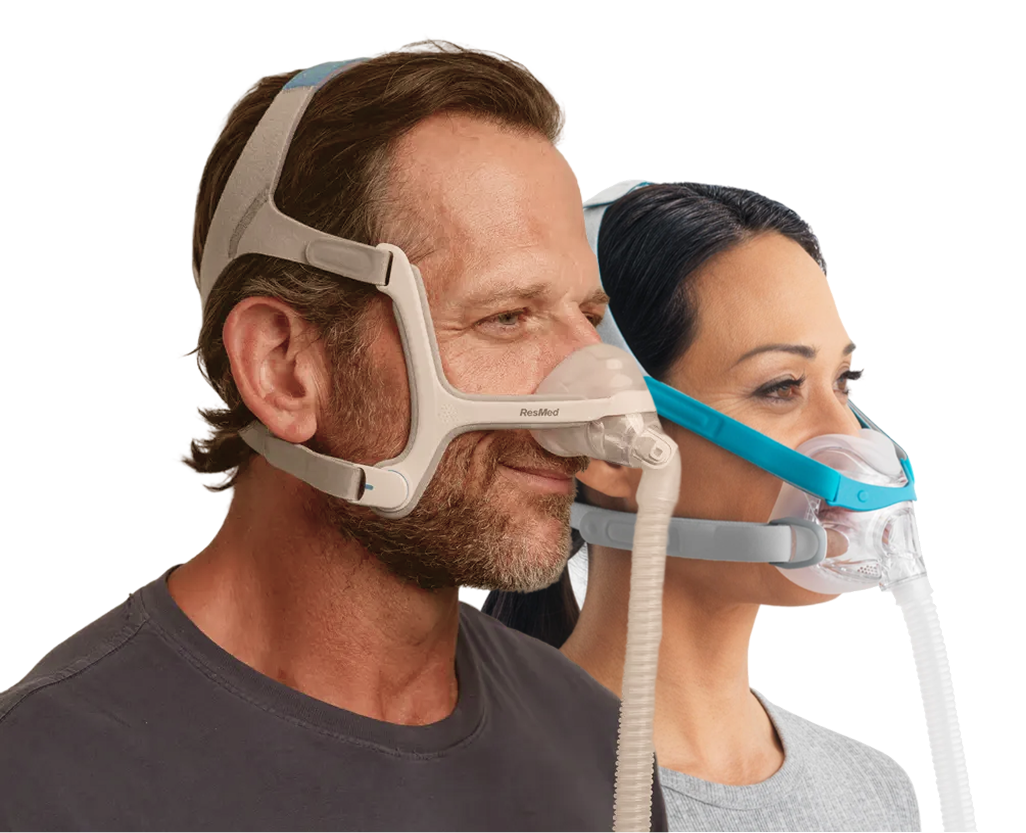

What is snoring? Snoring is a noise that occurs during sleep and can sound like grinding, whistling, sniffing or growling.
Is snoring normal? In general, infrequent snoring is normal and not a cause for concern. However, the severity of snoring can vary from mild and barely audible to severe and disturbing.
In some cases, snoring is often associated with a sleep disorder called obstructive sleep apnea (OSA). Not all snorers suffer from OSA, but if snoring is accompanied by any of the following symptoms, it may be a sign that you should see a doctor for further evaluation of OSA: Pauses in breathing observed during sleep. Excessive daytime sleepiness.
What are signs that you snore?
People who snore make vibrating, rattling, loud noises when they breathe in their sleep. This can be a symptom of sleep apnea. Other symptoms of sleep apnea may include:
- Excessive daytime sleepiness.
- Morning headaches.
- Recent weight gain.
- Waking up in the morning and not feeling rested.
- Waking up during the night and feeling confused.
- Changes in alertness, concentration, or memory.
- Observed pauses in breathing during sleep
>>> Excessive Daytime Sleepiness: Causes and How to Overcome It
>>> Why Do I Have Shortness of Breath at Night? 9 Common Causes
What causes snoring?
Snoring is a result of relaxed muscles in the mouth, tongue, and throat, which fall back towards the throat as you sleep. This relaxation can cause the upper airway to narrow, leading to increased airflow force and vibrations, resulting in loud snoring. Despite the noise, snorers are often unaware of their own sounds.
Various factors contribute to snoring, including enlarged tonsils, an enlarged tongue, excess neck weight, and structural issues like nose or jaw shape. Additionally, nasal congestion, sinus problems, allergies, smoking, and respiratory infections can exacerbate snoring. Medical treatments such as nasal sprays or allergy management may offer relief.
What causes snoring in females?
+ Pregnancy: Pregnancy brings with it a host of changes in the body, some of which increase the risk of snoring. Weight gain, hormonal changes and increased blood flow can contribute to snoring during pregnancy by narrowing the airways.
In over 30% of women, snoring begins in the second trimester of pregnancy. In the third trimester of pregnancy, snoring becomes even more frequent, and generally disappears after delivery.
+ Menopause: Menopause is the period when women and those considered women at birth stop menstruating and are no longer able to become pregnant. The hormonal changes that occur during and before menopause can cause symptoms such as hot flashes, sleep disturbances and weight gain. Some of these changes can cause or aggravate snoring.
+ Other factors that increase the risk of snoring in women include: Age over 50, Allergies, Sinusitis (acute and chronic), Overweight and obesity, Alcohol and tobacco consumption, Medication, particularly tranquilizers, Hypothyroidism
What causes snoring in males?
One of the main reasons men snore more often than women is anatomy. Both men and women have an area behind the tongue called the oropharynx, which is located just above the larynx. When sleeping, tissues in the back of the mouth relax and fall into this space, which can lead to snoring. In men, the oropharynx is larger because of the larger upper airway and lower larynx.
In addition, men tend to have more fat in the upper chest and neck, which can put pressure on the airway. Both men and women experience changes in airway structure when they move from sitting to lying down, but these changes are more significant in men
What Causes Snoring in Children?
In children, the most common risk factors for snoring include:
+ Large or swollen tonsils and adenoids
+ Obesity
+ Congestion
+ Allergies
+ Asthma
+ Anatomic characteristics
+ Environmental tobacco smoke (ETS)
+ Contaminated air
+ Shorter duration of breastfeeding
Obstructive sleep apnea is another important risk factor for snoring in children. Children with obstructive sleep apnea are characterized by snoring, including wheezing pauses in breathing. Although most children with OSA snore, not all children who snore have OSA.
What factors increase snoring?
-
Overweight
Snoring is more likely among individuals who are overweight or obese. The presence of excess fatty tissue, particularly around the neck area, can heighten the restriction of the airway when throat muscles relax.
-
Gender
While both men and women snore, men are more predisposed to snoring due to their anatomical structure. Men typically have narrower air passages, increasing the likelihood of airway restriction during sleep.
-
Aging
As individuals age, they tend to experience a decline in muscle tone throughout the body, including the upper airway. Snoring commonly afflicts older adults and may signify underlying conditions such as sleep apnea.
-
Alcohol
Alcohol consumption at night could be making your snoring worse as alcohol makes your muscles relax more than usual during a normal night’s sleep.
-
Medications
Taking sleeping tablets or sedatives to help you sleep can also make snoring worse as the medication causes muscles to relax further.
-
Hormonal Changes
Post-menopausal women have lower levels of oestrogen, which helps with muscle tone. Losing oestrogen means softer muscles, including in the upper airways.
Snoring and Sleep Apnea
Snoring is often associated with a sleep disorder called obstructive sleep apnea (OSA). Not all snorers suffer from OSA, but if snoring is accompanied by any of the following symptoms, it may be an indication to consult a physician for further evaluation of OSA:
+ Breathing pauses during sleep
+ Excessive daytime sleepiness
+ Difficulty concentrating
+ Morning headaches
+ Sore throat on waking
+ Restless sleep
+ Wheezing or suffocation at night
+ High blood pressure
+ Chest pain at night
+ Your snoring is so loud that it disturbs your partner's sleep.
+ In children, impaired concentration, behavior or school performance.
OSA is often characterized by loud snoring, followed by periods of silence during which breathing stops or almost stops. This reduction or pause in breathing can eventually become an alarm bell, waking you up with loud snoring or wheezing. You may not be able to sleep well because of disturbed sleep. These breathing pauses may occur several times during the night. People suffering from obstructive sleep apnea generally experience periods of slowed or stopped breathing at least five times per hour of sleep.

When to see a doctor?
If your snoring persists and you're concerned about the impact of snoring on your sleep or health, it's time to seek professional assistance.
For more detailed diagnostic and investigative services, we recommend visiting our parter CLM Sleep Treatment Programmes.
How do i stop snoring?
There are a variety of approaches available to address and reduce snoring. These range from lifestyle modifications aimed at resolving underlying causes to the use of medical interventions.
Lifestyle adjustments that may help mitigate snoring include:
- Refraining from alcohol consumption for at least four hours prior to bedtime
- Achieving and maintaining a healthy weight, particularly if one is currently overweight or obese
- Adopting a side-sleeping position rather than sleeping on the back
- Managing allergy symptoms and avoiding known allergens that can worsen snoring
In addition to lifestyle changes, several devices are available to assist with snoring:
- Mandibular Advancement Splint (MAS): Resembling a mouthguard, this device is worn during sleep between the teeth. It works by repositioning the lower jaw forward to increase airway space. A dental professional or oral surgeon typically fits this device.
- Continuous Machine: For individuals whose snoring is linked to obstructive sleep apnoea (OSA), a CPAP machine may be recommended. It delivers a steady stream of air through a mask to keep the airways open during sleep.
- Nasal Dilator Strips: These strips are designed to open the nasal passages, facilitating easier breathing. While they may ease nasal congestion, they are not sufficient on their own to eliminate snoring.
- Surgical Intervention: Uvulopalatopharyngoplasty (UPPP) is a surgical procedure that enlarges the airway by removing or reshaping tissue at the back of the throat. Although once widely used, its long-term effectiveness varies and tends to be limited.
For children whose snoring is caused by enlarged tonsils or adenoids, a healthcare provider may suggest surgical removal of these tissues to alleviate symptoms.
FAQs
What type of snoring is dangerous?
Nose/Nasal Snoring: This occurs due to blockages in the nostrils from a deviated septum, allergies (dust, pet), cold, nasal stiffness, or certain medications.
Mouth Snoring: Happens when someone sleeps with their mouth open, usually due to nasal blockage. Breathing through the mouth causes tissue vibrations. Snoring with a closed mouth may also occur due to blocked nasal passages, enlarged tonsils, or weak palate tissues.
Tongue Snoring: When sleeping on the back, the tongue can relax and fall backward, blocking airflow. It’s more common in people who drink alcohol, take sleep medication, or have excess fat around the neck.
Throat Snoring: This is the loudest and most dangerous type, often linked to sleep apnea. It happens when throat muscles relax too much, temporarily blocking airflow. It can cause choking, gasping, or waking during sleep and is linked to serious health risks like high blood pressure and stroke.
How to stop snoring in females?
With these tips you can prevent or reduce snoring:
+ If you are overweight, lose weight
+ Sleep on your side
+ Raise the head of the bed.
+ Nasal strips or an external nasal dilator
+ Treat blocked or obstructed nostrils
+ Limit or avoid alcohol and sedatives
+ Stop smoking
+ Get enough sleep
Why do people snore?
These are some conditions can affect the airway and cause snoring:
+ Your mouth anatomy
+ Alcohol consumption
+ Nasal problems
+ Sleep deprivation
+ Sleep position
Is snoring dangerous?
Snoring is a common disorder that can disrupt sleep. It occurs when air has difficulty passing through the nose or mouth. Light or occasional snoring is not usually a cause for concern. However, chronic snoring can increase the risk of certain diseases such as stroke and heart attack.
What causes snoring with mouth closed?
Blocked nasal passages, enlarged tonsils or weak palate tissues can also be the cause of closed-mouth snoring. In fact, a nasal snorer has little chance of snoring with his mouth closed if his nasal passages are severely blocked. Breathing through the mouth can lead to infections because the nose does not filter the air that passes through it.

